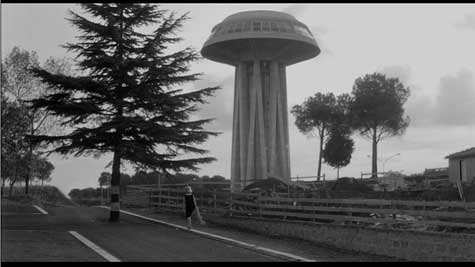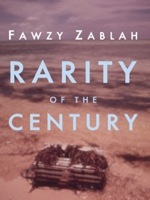
In Part One and Part Two, we looked at Antonioni’s visceral portrayal of alienation and his none-too-optimistic outlook on its implications: that we’re slowly becoming obsolete and unnecessary. It would be interesting to consider the conditions that resulted in the necessity to create such films as his trilogy. Of course, to provide a complete history, one would have to go back to the 1800s and the industrial revolution. I will try to provide at least a cursory and superficial examination of it here.
With the advent of the industrial revolution, you have the introduction of division of labor, wherein jobs become increasingly specialized to the extent that some people would have the job of pushing a button or pulling a lever all day. Eventually those jobs would be replaced by machines, and the humans would be relegated to other jobs that machines couldn’t accomplish, still menial and repetitive however.
With the propagation of liberal capitalism, the focus grew more on profit and efficiency. Government relaxed its controls, and power shifted into the hands of business. People became commodities to be handled like any other kind of capital, without regard to their needs and rights. In the early 1900s, there were progressive social movements to fight this trend, with some success, resulting in new protections on rights and government regulations. However, with the continuing growth of free market economics, power continued to be shifted to businesses, corporations, and money.
The increased influence of businesses began to take its toll on the traditional foundations of society such as religion, local cultures, and family. Also, with the help of two world wars, uncertainty began to replace certainty. God seemed to disappear as things became more relative, and moral/ethical decisions became a mere business consideration of cost-benefit. The traditional family fractured and the roles people traditionally held began to change or disappear.
You suddenly had mothers who slaved away in the corporate world to become the breadwinners, and fathers that weren’t so much the paterfamilias anymore. Children grew up increasingly in the absence of parents. And without the traditional models to grow on, they grew up directionless and seemingly without purpose other than being a cog in the giant, impersonal, relentless machine of capitalism.
As the standard of living rose, leisure time increased, and because working did not play as important a role in survival anymore, because of the increasing mechanization of job functions, there was a spiritual crisis in which working did not provide the fulfillment it once did and people became idle in their leisure.
In the case of the subjects of Antonioni’s trilogy, they are of the bourgeois, and consequently, not needing to work at all, thus completely bereft of any purpose whatsover. Rituals that they could previously rely upon to provide meaning to life such as marriage, family, work, religion no longer held any substance. Cut loose of those traditional ties to society, they were in effect free, though in this situation, more akin to being set adrift.
This is the context in which we should approach these films.
It is no surprise then that the films’ central theme is decay, most prominently exhibited in the relationships of the characters and more subtly suggested in the various empty settings such as dying small towns or barren landscapes. Nor should it be a surprise that there is a prevalence of wandering, of idle moments in the film in which the plot seems to go on a tangent, to skew away from any nascent bud of a developing story.
For Antonioni, just as traditional foundations of society and traditional ways of life had fallen apart, so must the traditional method in which life is portrayed in cinema. This means a departure from the formal narrative that defined cinema before, and a new visual style, developed at its peak in L’Eclisse, to replace it.
::Keep it locked on TOE for Part Four, which will present some examples of this kind of film from other countries::








